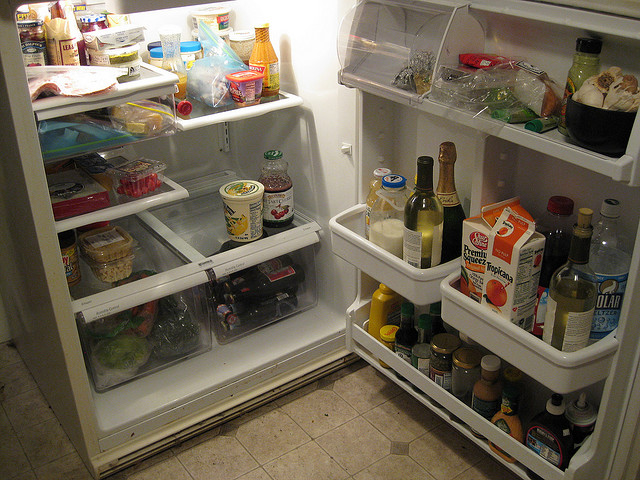Americans waste a lot of food.
Our society is a tossing society; we love single-use items and we don’t think twice about tossing food that appears to be too old to eat or leftovers that have been forgotten. According to Jonathan Bloom, author of American Wasteland, “we waste food because we take it for granted…. The average family of four throws out $1,350 of food every year.” [2] Most of the food waste makes its way into our overflowing landfills, causing a serious environmental hazard [3].
Many food products in our homes are tossed although they are still safe to eat. Thanks to those “Sell by” and “Best if Used By” dates stamped onto our food we are given permission to prematurely toss. A new website seeks to help curb our hasty decision to chuck food-Shelf Life Advice [4]. The site shows us that in many instances food product dates encourage food waste. Shelf Life Advice is chock-full of information on: how to store food properly, understanding those stamped dates, correctly freezing food, recall information and handling food safely.
EGGS
Eggs should be used within 3 – 5 weeks of the “sell-by” date. After that, they’re still edible, but they start to lose their freshness, and their quality.
YOGURT
Yogurt will remain good 7-10 days after its “sell-by” date. If kept longer, it will develop a stronger taste and the bacterial cultures (which act as preservatives) will start to die off.
MILK
Stored at or below 40° F, an open milk carton will be fine in the refrigerator for 5-7 days, usually longer.
BEEF
Don’t leave your meat on the counter to defrost overnight-this could cause bacterial growth.
Want more information? Head to Shelf Life Advice [6]-type in the food you have questions about and up pops information about its shelf life, storage suggestions and more.
If this post helped you, please share. Click HERE [7] to sign up for free updates from this site. And don’t forget to “like” us on Facebook [8]!

